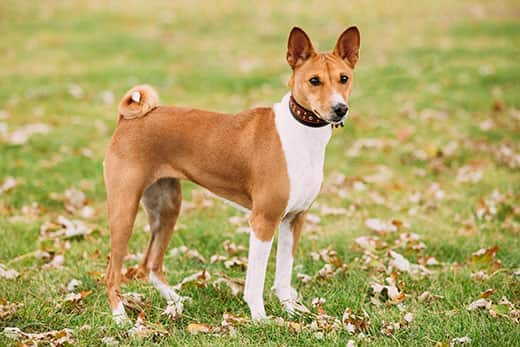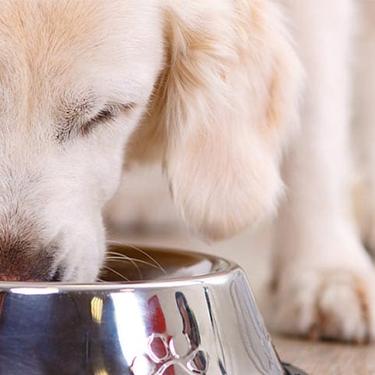
-
Find the right food for your pet
Take this quiz to see which food may be the best for your furry friend.
Find the right food for your pet
Take this quiz to see which food may be the best for your furry friend.
Featured products
 Adult 7+ Perfect Digestion Chicken, Whole Oats & Brown Rice Recipe Dog Food
Adult 7+ Perfect Digestion Chicken, Whole Oats & Brown Rice Recipe Dog FoodScience Diet's breakthrough nutrition supports ultimate digestive well-being & healthy microbiome for dogs age 7+
Shop Now Adult Healthy Cuisine Roasted Chicken, Carrots & Spinach Stew Dog Food
Adult Healthy Cuisine Roasted Chicken, Carrots & Spinach Stew Dog FoodDelicious roasted chicken paired with tender vegetables in a succulent stew
Shop Now Small & Mini Savory Stew with Chicken & Vegetables Dog Food
Small & Mini Savory Stew with Chicken & Vegetables Dog FoodA delicious complement to the nutrition of Science Diet Small & Mini 7+ dog food
Shop NowFeatured products
 Adult 7+ Tender Tuna Dinner Cat Food
Adult 7+ Tender Tuna Dinner Cat FoodWith delicious chunks in a decadent gravy
Shop Now Adult 7+ Senior Vitality Chicken & Vegetable Stew Cat Food
Adult 7+ Senior Vitality Chicken & Vegetable Stew Cat FoodImproves Everyday Ability to Get Up & Go
Shop Now Adult Savory Entrée Can Variety Pack Cat Food
Adult Savory Entrée Can Variety Pack Cat FoodPrecisely balanced nutrition with the delicious taste of savory minced chicken to help fuel the energy needs of cats during the prime of their life
Shop Now -
Dog
- Dog Tips & Articles
-
Health Category
- Weight
- Food & Environmental Sensitivities
- Urinary
- Digestive
- Joint
- Kidney
-
Life Stage
- Puppy Nutrition
- Adult Nutrition
- Senior Nutrition
Cat
- Cat Tips & Articles
-
Health Category
- Weight
- Skin & Food Sensitivities
- Urinary
- Digestive
- Kidney
-
Life Stage
- Kitten Nutrition
- Adult Nutrition
Featured articles
 Do Dogs and Cats have Belly Buttons?
Do Dogs and Cats have Belly Buttons?Learn whether cats & dogs have belly buttons like humans, what the function is, and if there are any health concerns associated with it.
Read More Does My Pet Hate Me?
Does My Pet Hate Me?Learn tips for bonding with your pet if you've ever thought, 'My dog doesn't like me, or 'Why do I have a standoffish cat?'
Read More Why Are Dogs and Cats So Cute?
Why Are Dogs and Cats So Cute?If waggy puppy dog tails and furry kitten yawns make you swoon, you're not alone. Why are cats so cute? And, dogs too! Let's find out!
Read More -


Have you noticed that your dog doesn't bark like other dogs in the neighborhood? For some dog parents, having a dog that doesn't bark might be something they can only dream about. But for others, it might be cause for concern.
Dogs bark for a lot of different reasons. In addition to warning intruders to stay away or alerting you to a potential threat, a dog might also bark because he's frustrated or bored, or because he simply wants your attention. Dogs also sometimes bark to express emotions such as fear, anger or excitement.
There are almost as many reasons why some dogs don't bark as there are reasons for barking. Here are some of the most common possibilities why your dog doesn't bark.
Breed Disposition

Some breeds, such as the Basenji, possess quiet temperaments that aren't geared toward a lot of barking. This might not mean that they never bark, or that they don't express themselves in other ways, such as howling or whining. But in a general sense, these dogs simply don't bark much.
Personality
While breed temperament can play a role, dogs are individuals, each with a unique set of personality traits. Some dogs are simply too laid back or friendly to bother with barking, while others may not like the sound of their own barking.
Honeymoon Phase
If your quiet dog is newly adopted, it could be that he's too shy to bark. Often, dogs adopted from a shelter or rescue tend to be on their best behavior during the first days or even weeks following adoption, says Cuteness. If this is the case, your dog may begin to bark more as he becomes more comfortable in his new surroundings.
Vocal Stress or Health Issues
If you have a dog that has suddenly stopped barking or appears to be trying to bark without making any noise, it could be that too much barking has strained his voice. Recent surgery is another reason your dog might be more silent than normal, or he simply might not be feeling well. However, if your pooch suddenly goes silent, it could also be indicative of a health issue. You should contact your veterinarian to discuss possible causes.


Tasty Tips
Training or Debarking
If you're dealing with a shelter dog or one whose history is unknown, it's possible that his previous owners had him debarked, which is a surgical procedure that involves trimming the vocal chords to reduce the volume. Debarked dogs are still capable of barking, they simply can't do so loudly. This is a procedure that we would not normally recommend — training should be your best course of action for teaching a dog not to bark. Another possibility is that your dog was previously trained not to bark, or that he was forced to wear a bark collar that suppressed his barking and broke him of the habit. Sadly, it could also be that your pup suffered abuse that made him fearful of barking. In such cases, with love and time, your dog might eventually get over his fear and go back to barking normally.
Ultimately, you know your dog best, and you're in the best position to decide whether being able to say "my dog doesn't bark" is bragging rights or a cause for alarm. If you're concerned about your dog's silence, talk to your vet to rule out medical or psychological issues. But if it turns out your dog is simply the strong, silent type, relax and count your blessings!


Jean Marie Bauhaus is a pet parent, pet blogger, and novelist from Tulsa, Oklahoma, where she usually writes under the supervision of a lapful of fur babies.
Related products
Related articles

Proper nutrition for your pregnant or nursing dog is vital to her and her puppy's health. Learn what you should do provide her with the proper nutrients.

Learn the the dangers of feeding your dog chocolate, which types are most dangerous, and what to do if you discover that they have consumed chocolate.

Learn how today's wet dog food blends have gotten a face lift, and how you'll provide your dog the nutrition he needs in the form he loves.

Learn about choosing the right dog food to help ensure your adult dog will receive the correct balance of nutrition.

Put your dog on a diet without them knowing
Our low calorie formula helps you control your dog's weight. It's packed with high-quality protein for building lean muscles, and made with purposeful ingredients for a flavorful, nutritious meal. Clinically proven antioxidants, Vitamin C+E, help promote a healthy immune system.
Put your dog on a diet without them knowing
Our low calorie formula helps you control your dog's weight. It's packed with high-quality protein for building lean muscles, and made with purposeful ingredients for a flavorful, nutritious meal. Clinically proven antioxidants, Vitamin C+E, help promote a healthy immune system.

